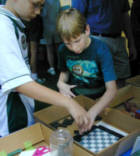
Nothing's impossible! ? |
about science about society about problems about technology about decision making about life |
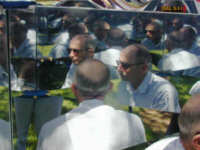
Solipsism Simulator ! |

Nothing's impossible! ? |
about science about society about problems about technology about decision making about life |

Solipsism Simulator ! |
| Sometimes science seems like magic.
Magic is something seemingly beyond human powers. Science obviously works, but when we try to make it work for ourselves its power often eludes us--it's just a bit beyond us. It's magic. Science works so well because for centuries those who discovered the science also discovered some better answers to several questions that we usually don't think to ask. But should! What's real and what isn't? How do we know? How can we become aware of our (unnoticed) logical aburdities? How can we make ourselves perfectly clear as we talk to each other? How do we work with others -- harmoniously and successfully? Before science becomes a tool in our hands like a brush in the hands of an artist, or a PlayStation.3 in the hands of a young computer game expert, we need to understand a little of science's (cryptic) answers to these questions because the power of science lies in those answers. Psuedoscience is likely to grow where the answers go unseen. Look below for some ideas on how philosophers answer these questions, that is, on how science works while pseudoscience doesn't. And then look at some other keys to really understanding science well enough that it becomes a tool-box: avoiding self-deception; escaping the straight jacket of black and white thinking while stretching into the greys, the colors, and beyond; avoiding other oversimplifications; learning to recognize the abstractions which relate the widest variety of situations (because these are often the more powerful discoveries of science); . . . |
Using science
involves recognizing abstractions easily enough that they become useful.
Recognizing these
six key concepts in unfamililar situations is well worth working toward.
They
are the most common, but unrecognized, barriers we need to surmount when
learning science and math.
Click on the illustrations to pursue a little further in directions recommended by astute students of philosophy.*
| 1. Words must have real-world meanings that all agree upon. |
|
We love free speech.
Including the freedom of hucksters to mislead with their language, and
our own freedom to mislead ourselves with ours.
|
|
| 2. Real-world objects must have substance -- wishes and wispy fictions are not real. |
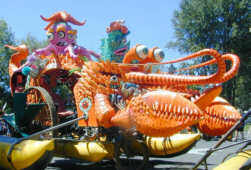
ONTOLOGY |
Our power to alter
the lottery's number-selection machine with, for example, our minds, our
chants, our determination, our strength of conviction, our goodness...
is our power to deceive ourselves. .
It also erodes our resistance to being deceived by others. |
|
| 3. Conclusions must be testable: the advertiser's abhorrence of disconfirmations should incite our abhorrence of advertiser's lures. |
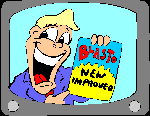
EPISTEMOLOGY |
The methods of
science have been honed into tools that cut away nonsense, self-deception,
irrelevance, crap, ignorance, and rigidity.
That's harder than it seems. Analogy and metaphor play a big role. |
|
| 4. Logic must root out inconsistencies and absurdities, which come cloaked in camouflage. |
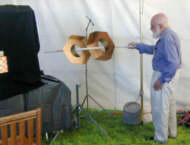
LOGIC |
If we avoid logic,
relevance and irrelevance will blend into a mishmash that steers us toward
errors and disasters.
Logical consistency is more elusive than we usually suspect. |
|
| 5. We are not alone. Ethics avoids doing harm to each other. |

ETHICS |
We are just one of the "others" to billions of people, and at least some of those billions understand the need for mutual reciprocity and eventual squelching of those who insist on being a danger to others. | |
| 6. We are not superbeings. It takes a community to advance knowledge. |

SOCIOLOGY |
After four centuries of grueling
hard work, human beings have barely begun to comprehend how scanty is our
biological equipment for gaining knowledge and how difficult it is to burst
those biological bonds imposed by our limited evolution. Mistakes
are the rule; peers are the editors.
We are all in this together.* *Thom
Hartmann
|
Look to Da Vinci Days
for many puzzle-routes, magic-routes, illusions-routes, deceptions-routes,
etc to these issues:
Da
Vinci Days, 2005
Da
Vinci Days, 2004
Da
Vinci Days, 2003
Check
out some secrets of science